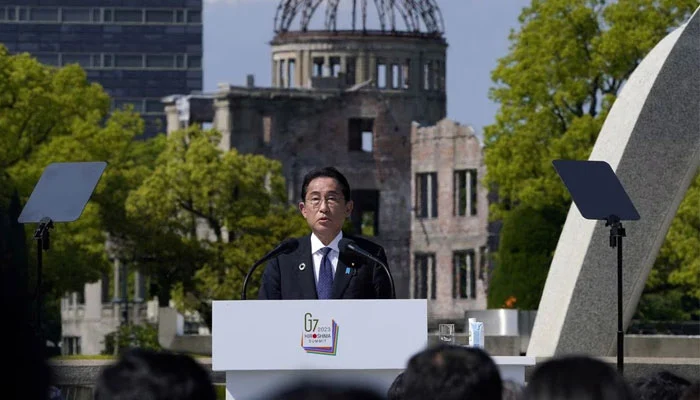The atomic bombing of Hiroshima by the US was commemorated on Sunday in Japan, where the city’s mayor called for the elimination of nuclear weapons and referred to the G7 leaders’ idea of nuclear deterrence as “folly”.
On the same day that the world remembers those who perished in the first nuclear attack, Russia threatened to use nuclear weapons in its conflict with Ukraine.
The biopic “Oppenheimer”, which details the development of the atomic bomb, has also recently become a box-office success in the US and has drawn criticism for mainly omitting the use of nuclear weapons to destroy Hiroshima and Nagasaki which was bombed three days later, on August 9, 1945.
In May, Prime Minister Fumio Kishida brought a G7 conference to Hiroshima, his home district, bringing attention to the city.
In a communiqué, the G7 leaders reaffirmed their commitment to disarmament while stating that nuclear weapons should be used to deter aggression and avert war as long as they were in existence.
At 8:15am on Sunday (23:15 GMT on Saturday), the time the bomb was detonated in 1945, a peace bell rang.
According to Reuters, about 50,000 participants in the outdoor memorial ceremony including ageing survivors observed a moment of silence, with the summer heat hitting 30°C (86°F)
“Leaders around the world must confront the reality that nuclear threats now being voiced by certain policymakers reveal the folly of nuclear deterrence theory,” Hiroshima Mayor Kazumi Matsui said at the ceremony, also attended by Kishida.
The prime minister said the road to a world without nuclear weapons was getting steeper, due in part to Russia’s nuclear threats, but that this made it all the more important to bring back international momentum towards that goal.
United Nations Secretary-General Antonio Guterres expressed his support.
“World leaders have visited this city, seen its monuments, spoken with its brave survivors, and emerged emboldened to take up the cause of nuclear disarmament,” he said in remarks read by a UN representative. “More should do so, because the drums of nuclear war are beating once again.”
The bomb dropped on Hiroshima on August 6, nicknamed “Little Boy”, killed thousands instantly and about 140,000 by the end of the year, followed by Japan’s surrender on August 15.



Comments are closed.